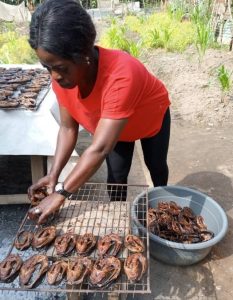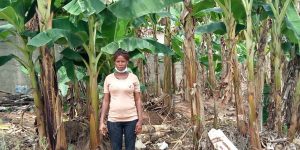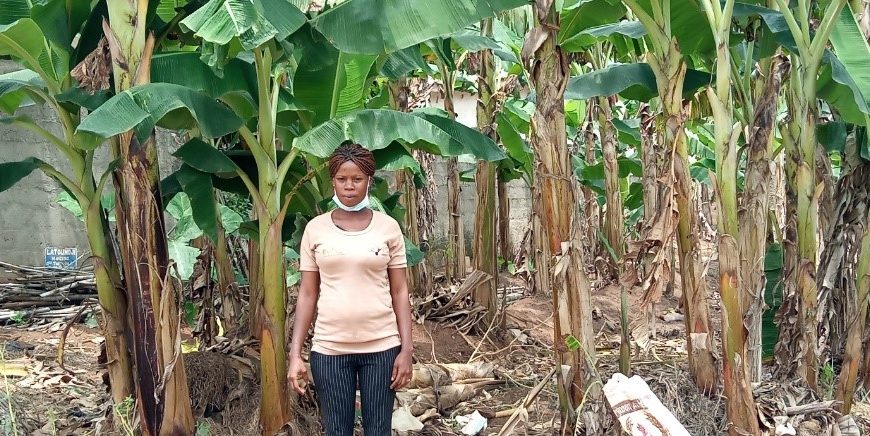© Post originally published on www.ifad.org
Many young people leave their homes in the rural areas of West Africa with a dream of succeeding in the city. But all too often, they can only find poorly paid jobs in the informal sector—if they find work at all. In Nigeria, the most populous country in Africa, one in five young people is unemployed.
To stop the flow of young people out of rural areas, the IFAD-supported pilot of the Youth Employment in Agri-business and Sustainable Agriculture (YEASA) initiative gave more than 2,000 unemployed rural youth in Nigeria and Benin the skills and equipment needed to become successful agri-entrepreneurs.
Fishy business
 Awoniyi owns seven ponds where she stocks thousands of fish. © Onasanya Emmanuel Oludayo
Awoniyi owns seven ponds where she stocks thousands of fish. © Onasanya Emmanuel Oludayo
35-year-old Awoniyi Folake Temitope started her smoked catfish business in Nigeria after receiving training and cash grants for drying equipment through YEASA. But soon after she started, she found that the fish in the markets weren’t quite what she needed. It was then that Awoniyi decided not only to smoke fish but to farm them as well.
Three years later, she now owns seven fish ponds stocking over 10,000 catfish. When the fish are big enough, she catches, processes, and packages them for sale under her brand, Delightsome. Awoniyi walks through her fish farm, sprinkling handfuls of fish food into each carefully tended, green-fringed pond.
“I have a farmhouse and a farm,” she says proudly. “And I have people working with me because I cannot do this work alone.”
Plantain power

With support from YEASA, Constance now cultivates two crops instead of one. © Omotomiwa Adesanya
In Benin, 31-year-old Constance Zankran used to cultivate only banana plants. But after gaining new tools through YEASA, she added plantains to her farm. Now she can rely on two crops, instead of just one.
She also processes plantain and unripe bananas into chips, helping her reach a larger market, including supermarkets and schools across several regions.
With her diverse range of products, Constance is ensuring that she can earn a living even in uncertain times.
Rising high
For many young people in Nigeria and Benin, YEASA has offered a pathway to building the future they had always dreamed of. By starting businesses that produce high-value products, rural youth can earn as much as their urban counterparts and many even employ other rural youth as their business grows. Mentoring and entrepreneur networks help them get support and expertise—and pass on what they know to others.
Going forward, Nigeria hopes to continue YEASA’s legacy by providing young farmers with funding, internships and access to markets. In Benin, YEASA-trained youth are being hired in government agri-business programmes, where they are integrating the project’s successes into local policies.

